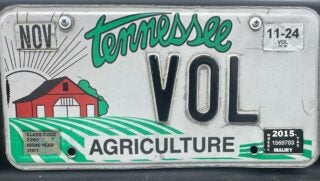The Climate Positive Leaders Program, a nomination-based farmer and rancher recognition initiative spearheaded by Coreteva Inc., is designed to showcase early adopter producers who are successfully implementing, scaling and sharing climate positive practices. Representing Australia, Brazil, Canada, Kenya, and the United States, these farmers have adopted a wide range of innovative systems and approaches that uniquely support their productivity goals while protecting the land and water.
The 2021 Climate Positive Leaders Program winners are:
United States
- Ryan Speer — a farmer in Sedgwick, Kansas, who produces corn, beans, milo, wheat, cotton, and cover crops, ensuring there is a living root in all acres 365 days a year to prevent soil erosion.
- Bill Couser — a farmer in Nevada, Iowa, who grows commercial corn, soybeans, alfalfa, sorghum, and oats, and works with state universities, technology innovators and equipment manufacturers to leave more nutrients in the field.
- Brad Clark — a row crop and dairy cow producer in Bagley, Wisconsin, who has implemented never-till, block planting and perennial vegetation practices to raise soybeans, barley, rye, and wheat as commodity crops, and corn and alfalfa as cattle feed.
- Harold Grall — a farmer in Dumas, Texas, managing irrigated and dryland acres producing corn, grain sorghum, and wheat with very limited tillage to preserve residue along with water conservation measures to protect the Ogallala Aquifer.
Australia
- Jake Ryan — a mixed cropping/livestock producer in Manjimup, Western Australia, using holistic grazing, minimal tillage, cover cropping, and mineral nutrition to produce a wide variety of winter vegetables, cereal and oilseed commodity crops, ewes for wool and lamb production, first cross Angus Friesian heifers, and pasture-raised laying hens.
Brazil
- Charles Peeters — a farmer in Montividiu, Goiás State, Brazil, who uses no-till with a plant nutrient and soil coverage management system for rotational soybeans, corn, and cattle.
- Abilio Rodrigues Pacheco — a farmer and forestry researcher in Cachoeira Dourada, Goiás State, Brazil, who has implemented an integrated crop, livestock and forestry system to produce soybeans, corn, millet, eucalyptus trees, grass, and beef cattle.
Canada
- Kristjan Hebert — a farmer in Fairlight, Saskatchewan, who applies no till, variable rate input management, cover and rotational cropping to produce canola, fall rye, malt barley, hard red spring wheat, oats, and peas.
Kenya
- Felix Kili — a farmer in Eldoret, Rift Valley, Kenya, using minimal tillage and crop residue preservation techniques that retain moisture for primary crops including maize, barley, wheat, and oilseed rape, as well as cover crops such as sun hemp, sunflower, and canola.
Farmers were nominated by regional third-parties including grower groups, nonprofit organizations, universities or other technology assistance partners, and were judged by a panel of agriculture industry leaders based on program criteria. The nine winners (below) will receive lifetime membership, training and other benefits from Global Farmer Network; soil sampling, carbon sequestration measurement, and guidance from the Carbon Management and Sequestration Center (CMASC) at the Ohio State University; and opportunities to share their proven successes with other farmers.
James C. Collins, Jr., Chief Executive Officer, Corteva Agriscience said, “I am pleased to recognize and honor these farmers who have clearly demonstrated that sustainability does not come at the expense of profit or productivity. They have made a measurable impact in advancing climate positive agriculture and I welcome the opportunity to share their stories for the benefit of farmers and all food system stakeholders around the world.”


